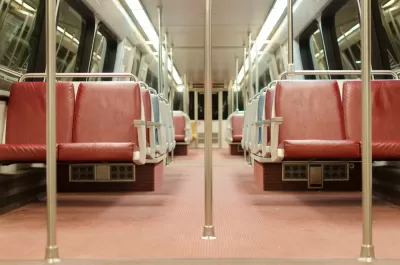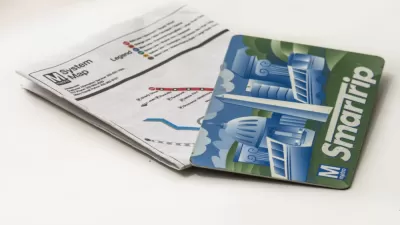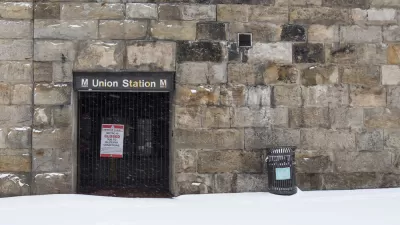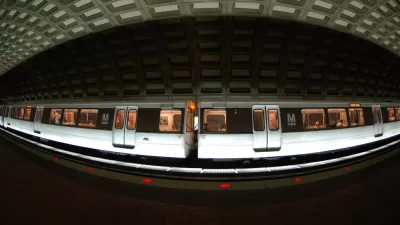At transit agencies like D.C, Metro, bad ridership projections beget bad fare scheduling which begets bad budgets. And so on.

The Washington Metropolitan Transit Authority's well documented challenges with maintenance and ridership are further complicated by inaccuracies in the region’s travel forecasts, according to an article by Martin Di Caro.
Bad projections, according to Di Caro, breed "unreliable budgeting and eroding confidence that Metro’s leaders have the best data possible to manage the current ridership losses."
Metro recently announced a fare increase, but it "remains unclear where Metro’s ridership and fare revenue need to be to avoid annual debates over fare hikes and service cuts," according to Di Caro. A report by Metro's inspector general [pdf] found "that the transit authority’s key departments recognize the old way of predicting commuter behavior and setting fare levels no longer works."
Yet, D.C. Metro is not the only Metro in the country struggling to build better predictive modeling. "Metro reached out to other major systems via survey, confirming that they 'face similar constraints in making changes to fare structures, such as economic factors, available funding, political opposition, and public board reaction,'" according to Di Caro.
FULL STORY: Why Metro Can’t Predict How Many People Will Ride The Trains

Alabama: Trump Terminates Settlements for Black Communities Harmed By Raw Sewage
Trump deemed the landmark civil rights agreement “illegal DEI and environmental justice policy.”

Study: Maui’s Plan to Convert Vacation Rentals to Long-Term Housing Could Cause Nearly $1 Billion Economic Loss
The plan would reduce visitor accommodation by 25% resulting in 1,900 jobs lost.

Planetizen Federal Action Tracker
A weekly monitor of how Trump’s orders and actions are impacting planners and planning in America.

Wind Energy on the Rise Despite Federal Policy Reversal
The Trump administration is revoking federal support for renewable energy, but demand for new projects continues unabated.

Passengers Flock to Caltrain After Electrification
The new electric trains are running faster and more reliably, leading to strong ridership growth on the Bay Area rail system.

Texas Churches Rally Behind ‘Yes in God’s Back Yard’ Legislation
Religious leaders want the state to reduce zoning regulations to streamline leasing church-owned land to housing developers.
Urban Design for Planners 1: Software Tools
This six-course series explores essential urban design concepts using open source software and equips planners with the tools they need to participate fully in the urban design process.
Planning for Universal Design
Learn the tools for implementing Universal Design in planning regulations.
Caltrans
Smith Gee Studio
Institute for Housing and Urban Development Studies (IHS)
City of Grandview
Harvard GSD Executive Education
Toledo-Lucas County Plan Commissions
Salt Lake City
NYU Wagner Graduate School of Public Service





























